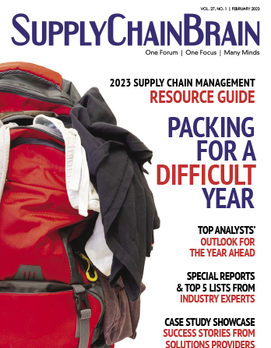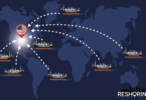
Home » The Growing Demand for Supply Chain Compliance and Transparency
REGULATION & COMPLIANCE
The Growing Demand for Supply Chain Compliance and Transparency
 Analyst Insight: Unprecedented geopolitical volatility, combined with escalating shareholder and stakeholder expectations, is driving demand for supply chain compliance and transparency. Business leaders can no longer focus only on the mechanics of their logistics operations; they also need to consider the impact of supply chain operations on people and the planet, and embed compliance into the movement of goods and services around the world. Otherwise, they face delays and monetary penalties.
Analyst Insight: Unprecedented geopolitical volatility, combined with escalating shareholder and stakeholder expectations, is driving demand for supply chain compliance and transparency. Business leaders can no longer focus only on the mechanics of their logistics operations; they also need to consider the impact of supply chain operations on people and the planet, and embed compliance into the movement of goods and services around the world. Otherwise, they face delays and monetary penalties.
When thinking about global supply chains, many consider only the physical movement of goods. While transportation is the visible aspect of supply chains, many don’t see the legal side — compliance — that takes place in the background. While compliance is less visible, cross-border trade can come to a dead stop without the proper legal foundation for a supply chain. Compliance ensures that organizations follow the laws and regulatory requirements of the countries they work with and operate within.
Transparency takes compliance a step further. While compliance confirms that organizations can do business with vetted countries and entities, transparency dictates that businesses should do business with them. By providing visibility into the supply chain, transparency protects companies from exposure to risks that may damage the brand, its reputation or resilience. With transparency, companies self-sanction — not because it’s illegal to conduct business in sensitive regions or with questionable entities, but because the level of risk isn’t tolerable.
The more global nature of business today poses much greater complexity and risk to organizations. Volatility is another factor: The pandemic and Russia-Ukraine war have brought into sharp focus how quickly the world can change. From a supply chain compliance and transparency perspective, being prepared for the rate and scope of change can greatly bolster resiliency, keep shipments moving smoothly, and ensure that companies aren’t working with denied parties or countries under trade restrictions or embargoes.
Another issue is new legislation and regulatory requirements. Environmental, social and governance (ESG) is an emerging domain that has received exceptional attention. Having created its Climate and ESG Task Force in March, 2021, the U.S. Securities and Exchange Commission has already announced enforcement actions against several firms for misconduct. Forced labor alerts have also become a big compliance driver. For example, there is now a law enforcing importers to be highly diligent when sourcing from the Chinese province of Xinjiang, amid allegations of forced labor among the Uyghur population. With reports of systemic use of forced labor in Qatar for the 2022 World Cup, the issue is sure to remain a primary focus as ESG compliance grows exponentially.
The burden of due diligence on business is huge, as the accountability for supply chain compliance and transparency falls to the organization itself. While compliance leaders have a wealth of knowledge, they need help to automate and streamline many of the more manual and operational components of compliance, such as denied-party screening, export-control processes and broader third-party due diligence. Global trade intelligence technology provides this level of automation and helps businesses to access specialized information and trade data to keep pace with evolving requirements, and make the best possible compliance decisions.
Outlook: Across diverse industries, leading organizations are thinking now about how to position the compliance practice for success, instead of reacting to a significant event. Effective compliance will not only drive growth and profitability; it will also help businesses demonstrate a commitment to “doing well by doing good.”
RELATED CONTENT
RELATED VIDEOS
Subscribe to our Daily Newsletter!
Timely, incisive articles delivered directly to your inbox.
Popular Stories

2023 Supply Chain Management Resource Guide: Packing for a Difficult Year
VIEW THE LATEST ISSUECase Studies
-
JLL Finds Perfect Warehouse Location, Leading to $15M Grant for Startup
-
Robots Speed Fulfillment to Help Apparel Company Scale for Growth
-
New Revenue for Cloud-Based TMS that Embeds Orderful’s Modern EDI Platform
-
Convenience Store Client Maximizes Profit and Improves Customer Service
-
A Digitally Native Footwear Brand Finds Rapid Fulfillment



